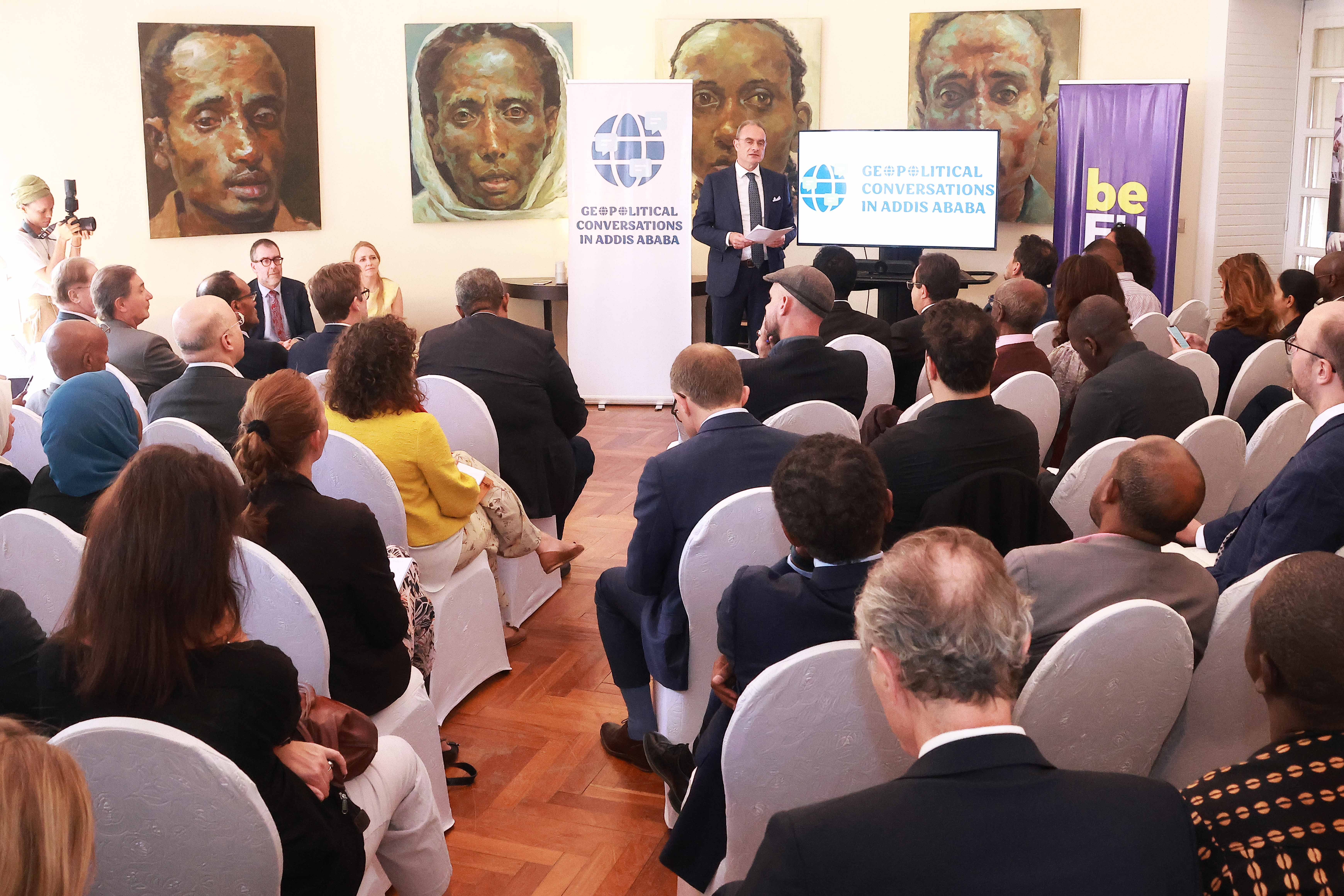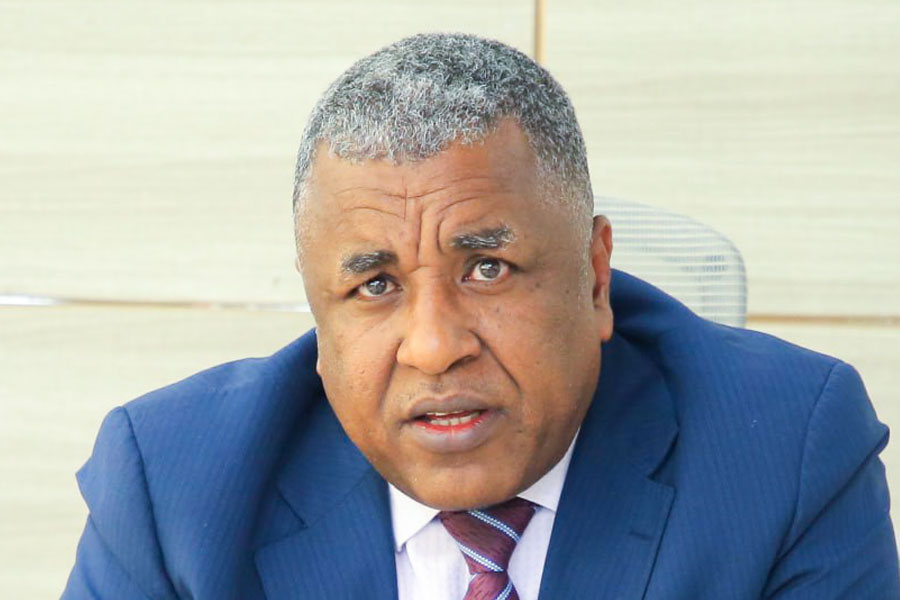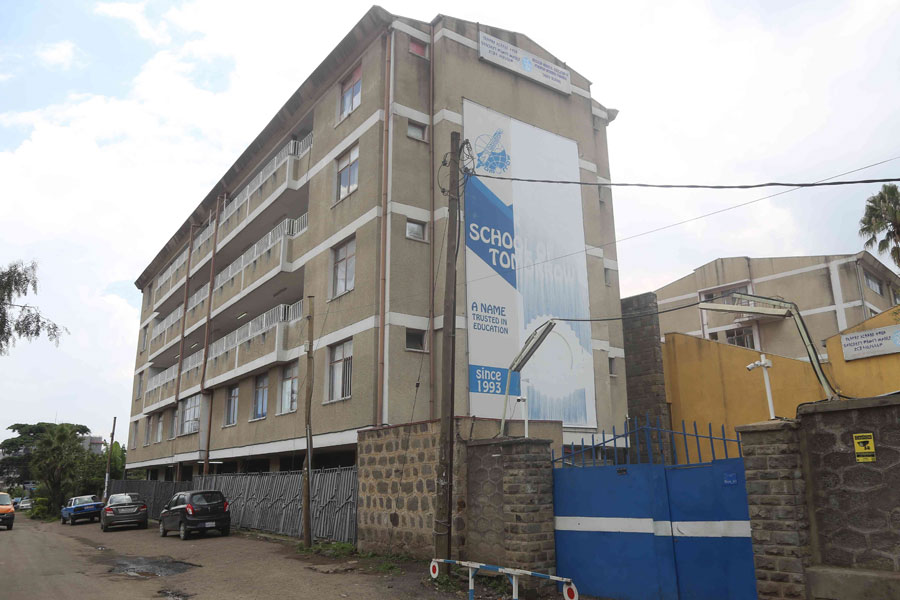
Mar 18 , 2023.
Ethiopia's economy once hailed as a paragon of growth and development, now faces a confluence of challenges, including falling net foreign assets, an expanding trade deficit, and escalating inflation. These issues have exerted pressure on the overall balance of payments, which, despite positive moments, has recently entered the red.
Prime Minister Abiy Ahmed's (PhD) administration strategy of financing budget deficits through domestic borrowing continues to alarm macroeconomic pundits about the sustainability of this approach. Its implications for inflation, public spending, and revenue mobilisation are profound. Policymakers must grapple with these issues to restore macroeconomic stability and resume the trajectory of growth and development.
Ethiopia`s rapid economic growth, averaging 10.2pc annually over two decades, now faces the daunting task of addressing its declining net foreign assets and GDP. This reversal of fortune is marked by a 29.1pc depreciation in net foreign assets three years ago, accompanied by a three percent contraction in GDP growth. The downtrend continued in 2021, with net foreign assets dropping by 29.8pc and GDP growth contracting by 1.1pc to 5.6pc.
The weakening of Ethiopia's macroeconomic fundamentals has left the country grappling with political instability, a depreciating currency, and rising inflation.
The Birr has experienced a significant dwindle in recent years. Primarily driven by the civil war and political instability, this decline has put additional pressure on net foreign assets. Despite relatively stable average marginal exchange rates, fluctuations have occurred, such as a jump from 8.63 Br for a dollar in 2003/04 to 39 Br in 2018/19. As of last week, a dollar was exchanged for 54.8 Br—half of the parallel market rate.
A shortage of foreign exchange, resulting from declining net foreign assets, has led to increased inflation. When net foreign assets began their descent in 2020, inflation spiked to 19.1pc. This upward trajectory continued the following year, with inflation reaching 23.7pc. With Ethiopia's reliance on imports outweighing its exports, the depreciation of the Birr has led to a persistent rise in the domestic cost of living.
Inflation rates have fluctuated over the years, hitting highs of 30.3pc in 2008/09 and 35.9pc in 2010/11. Although it remained relatively stable between 2003/04 and 2018/19, averaging 11.1pc, year-on-year inflation reached 33.9pc in January this year, subsequently moderating to 32.5pc the following month.
The fluctuations in net foreign assets can be attributed to changes in the balance of payments, encompassing exports, imports, and foreign investments.
While the import of goods and services peaked at 19.8 billion dollars in 2018/19 before dropping slightly the following year, exports have also seen consistent growth, increasing from 1.52 billion dollars in 2003/04 to 8.5 billion dollars in 2018/19, before falling to 7.16 billion dollars a year later.
Nevertheless, Ethiopia's external trade has long been characterised by a trade deficit. Import values have consistently exceeded export revenues, with net trade in goods and services displaying a negative trend. The deficit ranged from 1.73 billion dollars in 2003/04 to 13.79 billion dollars in 2012/13 and reached a negative 10.6 billion dollars in 2018/19.
The trade deficit, a persistent thorn in Ethiopia's side, has significantly eroded its net foreign assets. As the country struggles to foot the bill for its imports, demand for foreign currency has surged, intensifying pressures on the overall balance of payments. Though the balance of payments enjoyed a zenith of 766.4 million dollars in 2004/05, it registered a deficit of 972.79 million dollars in 2018/19, reflecting the deteriorating economic situation.
Similarly, the current account balance, including official transfers, has remained in negative territory, to a nadir of 7.4 billion dollars in deficit in 2013/14. While the capital account balance has witnessed sporadic moments of respite, signifying a net capital inflow and peaking at 7.8 billion dollars in 2018/19, the overall balance of payments has languished in the red recently.
The increasing reserve requirements reflect concerns about maintaining financial stability amid the threat of inflation.
In response to these concerning developments, Ethiopian policymakers have increased reserve requirements, underscoring the need to maintain adequate reserves to preserve financial stability. Such moves could indicate burgeoning concerns about inflation, partly driven by the government's attempts to finance its ballooning budget deficit through substantial public borrowing. The broad money supply experienced significant growth between 2003/04 and 2019/20, attributable to an expansion in credit to the government and a concurrent increase in net foreign assets. However, a contraction in the broad money supply in 2020/21 may signal an economic slowdown or outright shrinkage.
The period also saw a notable increase in total net domestic credit, driven primarily by an uptick in credit to the government and other sectors. The private and other non-governmental sectors also enjoyed substantial credit growth. Total net domestic credit swelled from 31.1 billion Br in 2003/04 to 1.48 trillion Br in 2019/20, reflecting the government's penchant for financing budget deficits through domestic borrowing. The public's share of total net domestic credit has also risen, from 19.1 billion Br in 2003/04 to 214.2 billion Br in 2019/20, stoking fears over the sustainability of government borrowing and its potential ramifications for inflation, public spending, and revenue mobilisation.
Tax revenues have constituted the primary driver of total revenue growth, with aggregate revenues climbing steadily from 10.9 billion Br in 2003/04 to 311 billion Br in 2019/20. However, the share of tax revenues as a percentage of GDP has declined precipitously, from a peak of 15pc in 2014/15 to 11pc in 2019/20. Despite the government's success in generating additional revenues to finance a range of programs and projects, total expenditures have outpaced revenues, culminating in a widening budget deficit. The overall budget deficit (including grants) as a percentage of GDP has hovered around four percent in recent years, suggesting that the Ethiopian government has struggled to manage its budget deficit within reasonable bounds.
To stem the tide of this grim macroeconomic reality, Ethiopian policymakers have several options at their disposal.
They would be wise to consider a multifaceted approach to reverse the grim macroeconomic trajectory.
Its chronic trade deficit is a critical weak link in Ethiopia's broader economy. Export diversification could provide a much-needed remedy. By broadening the country's export base and enhancing foreign exchange earnings, Ethiopia can bolster the resilience of its economy. Policymakers should focus on cultivating non-traditional export sectors such as services, manufacturing, and technology, which could spur growth and diversification.
For over two decades, Ethiopia's economic expansion has been fuelled primarily by its agriculture sector, which accounts for over half of its GDP and employs more than 80pc of the population. However, the industrial and service sectors have also witnessed substantial growth, with the industrial sector's output surging from 23.7 billion Br in 2003/04 to 618.8 billion Br in 2018/19, and the service sector expanding from 84.2 billion Br in 2003/04 to 836.2 billion Br in 2018/19.
Attracting foreign investments is another crucial element in Ethiopia's quest for enhanced foreign exchange earnings and an improved balance of payments. To achieve this, the government should extend a more extensive array of incentives to foreign investors, streamline investment approval procedures, and, most importantly, guarantee the swift repatriation of profits and capital. Additionally, considering Ethiopia's capital account liberalisation could signal the government's commitment to a new direction in macroeconomic policymaking.
Meanwhile, Ethiopian authorities must not overlook the importance of nurturing the domestic private sector. By fostering an environment conducive to investment, reducing bureaucratic obstacles, holding officials accountable for corruption and embezzlement, and providing incentives, Ethiopia can unleash the untapped potential of its private sector. Achieving this goal necessitates a robust public finance management system, without which financial stability and sustainable economic growth may prove elusive. Key components of such a system include improved revenue mobilization, prudent public spending, and heightened transparency and accountability in public finance management.
Ethiopia's fiscal policies, too, warrant careful examination. Policymakers can respond to inflationary pressures by curbing public spending and augmenting tax revenues. Adopting monetary policies aimed at reducing the money supply growth rate—such as increasing reserve requirements, selling government securities, and raising interest rates—can help counteract inflation.
The decline in net foreign assets and the depreciation of the Ethiopian Birr have been exacerbated by ongoing political instability. The civil war in the north, which erupted more than two years ago, has profoundly impacted Ethiopia's economic fortunes. The country has forfeited substantial amounts of loans and grants as donors and lenders have grown increasingly wary of its political climate. Addressing this challenge will require political leaders and policymakers to promote dialogue and negotiate settlements over fundamental differences, paving the way for a peaceful environment that can restore confidence in the fate of the country.
PUBLISHED ON
Mar 18,2023 [ VOL
23 , NO
1194]

Radar | Jan 27,2024

Radar | Apr 09,2022

Sponsored Contents | May 02,2023

Fortune News | Oct 13, 2024

Fortune News | Apr 10,2023

Radar | May 04,2019

Featured | Sep 08,2024

Agenda | May 20,2023

Addis Fortune | May 04,2024

Fortune News | Jul 13,2024

My Opinion | 131584 Views | Aug 14,2021

My Opinion | 127940 Views | Aug 21,2021

My Opinion | 125915 Views | Sep 10,2021

My Opinion | 123539 Views | Aug 07,2021

Dec 22 , 2024 . By TIZITA SHEWAFERAW
Charged with transforming colossal state-owned enterprises into modern and competitiv...

Aug 18 , 2024 . By AKSAH ITALO
Although predictable Yonas Zerihun's job in the ride-hailing service is not immune to...

Jul 28 , 2024 . By TIZITA SHEWAFERAW
Unhabitual, perhaps too many, Samuel Gebreyohannes, 38, used to occasionally enjoy a couple of beers at breakfast. However, he recently swit...

Jul 13 , 2024 . By AKSAH ITALO
Investors who rely on tractors, trucks, and field vehicles for commuting, transporting commodities, and f...

Jun 29 , 2025
Addis Abeba's first rains have coincided with a sweeping rise in private school tuition, prompting the city's education...

Jun 29 , 2025 . By BEZAWIT HULUAGER
Central Bank Governor Mamo Mihretu claimed a bold reconfiguration of monetary policy...

Jun 29 , 2025 . By BEZAWIT HULUAGER
The federal government is betting on a sweeping overhaul of the driver licensing regi...

Jun 29 , 2025 . By NAHOM AYELE
Gadaa Bank has listed 1.2 million shares on the Ethiopian Securities Exchange (ESX),...